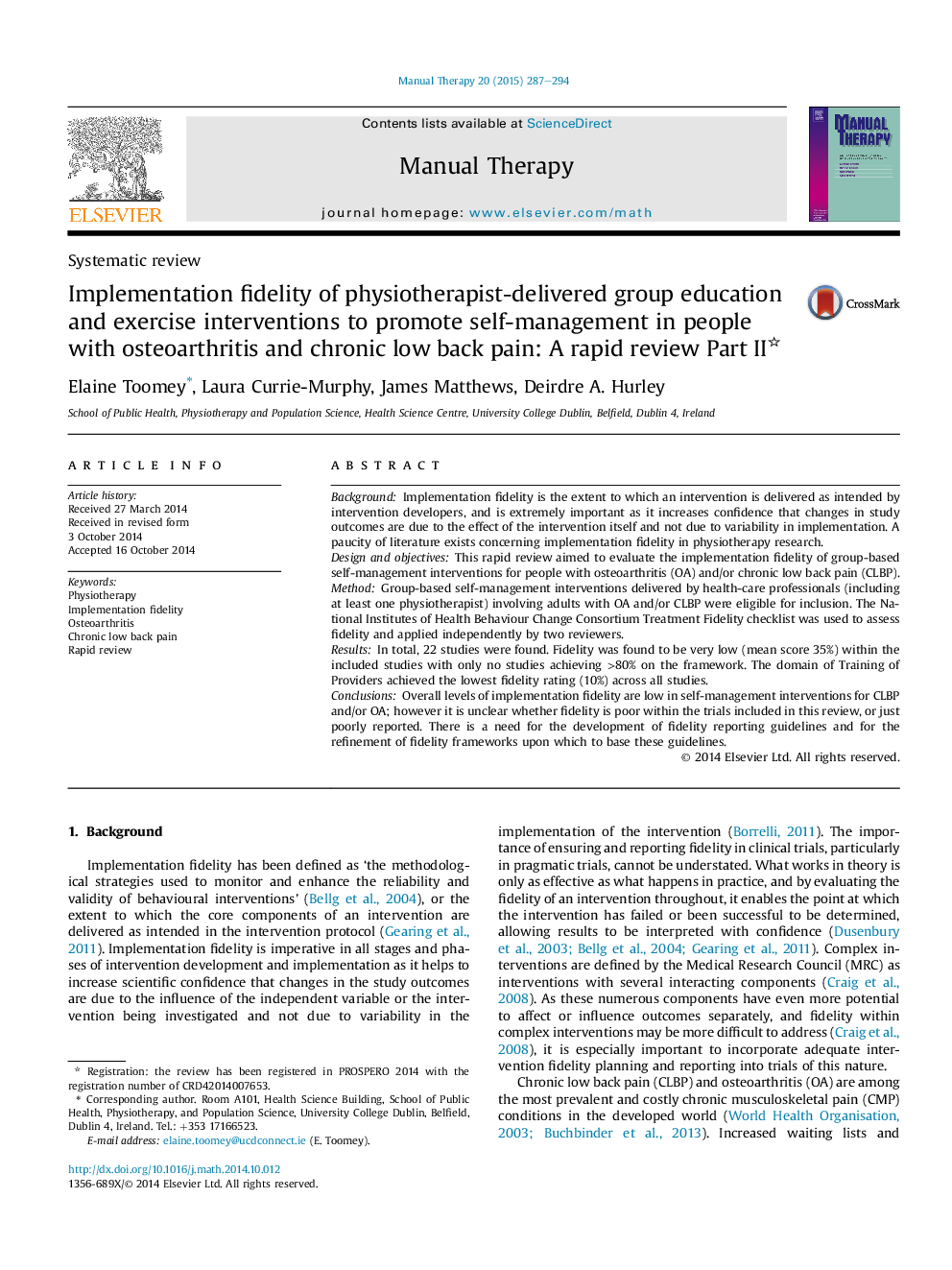| Article ID | Journal | Published Year | Pages | File Type |
|---|---|---|---|---|
| 2625580 | Manual Therapy | 2015 | 8 Pages |
BackgroundImplementation fidelity is the extent to which an intervention is delivered as intended by intervention developers, and is extremely important as it increases confidence that changes in study outcomes are due to the effect of the intervention itself and not due to variability in implementation. A paucity of literature exists concerning implementation fidelity in physiotherapy research.Design and objectivesThis rapid review aimed to evaluate the implementation fidelity of group-based self-management interventions for people with osteoarthritis (OA) and/or chronic low back pain (CLBP).MethodGroup-based self-management interventions delivered by health-care professionals (including at least one physiotherapist) involving adults with OA and/or CLBP were eligible for inclusion. The National Institutes of Health Behaviour Change Consortium Treatment Fidelity checklist was used to assess fidelity and applied independently by two reviewers.ResultsIn total, 22 studies were found. Fidelity was found to be very low (mean score 35%) within the included studies with only no studies achieving >80% on the framework. The domain of Training of Providers achieved the lowest fidelity rating (10%) across all studies.ConclusionsOverall levels of implementation fidelity are low in self-management interventions for CLBP and/or OA; however it is unclear whether fidelity is poor within the trials included in this review, or just poorly reported. There is a need for the development of fidelity reporting guidelines and for the refinement of fidelity frameworks upon which to base these guidelines.
